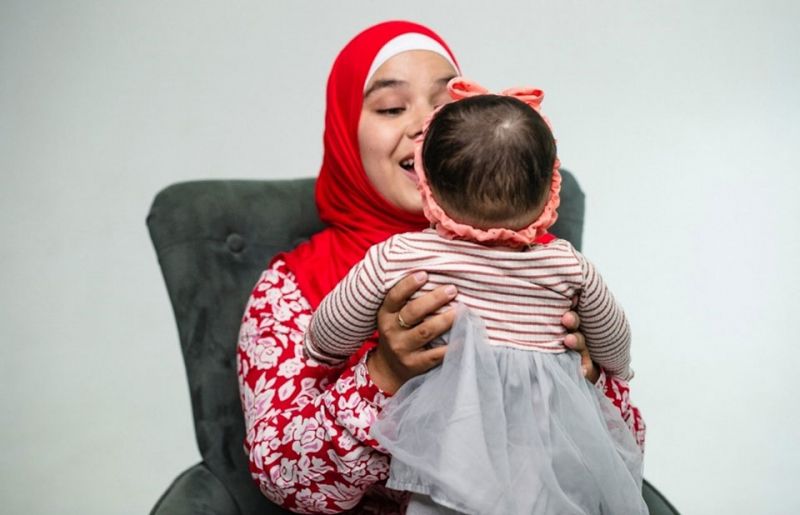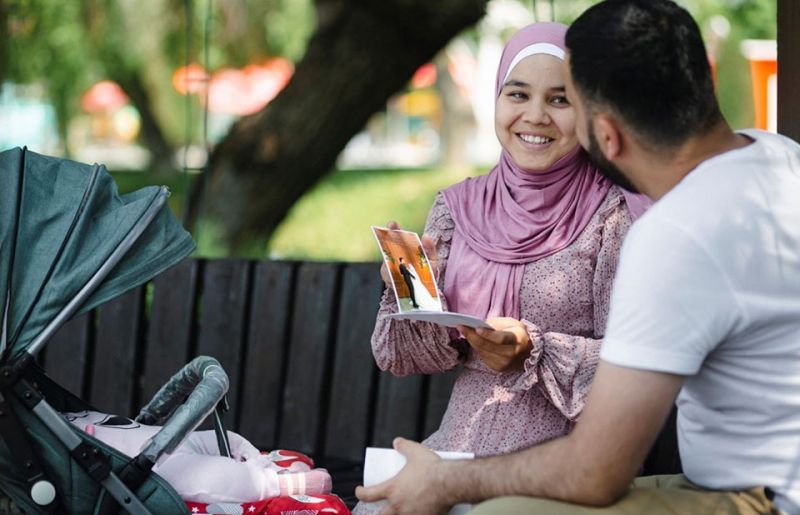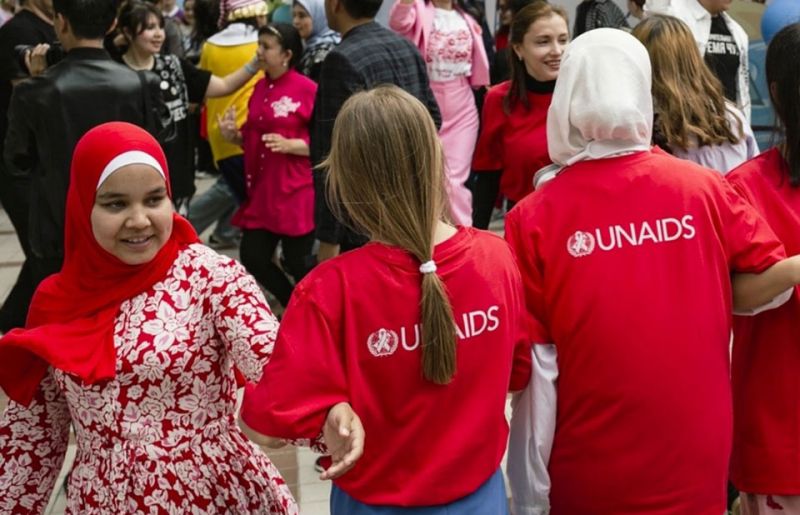Last year, Elina Kruglova made a bold decision. She disclosed her HIV status during the casting of a popular reality TV show in Uzbekistan.
“I disclosed my status right at the casting because the project lasted for several months, and I needed to take medicine daily,” she said. “I made the decision to be honest and mustered up the courage. I thought they wouldn't accept me, but I passed the casting," Ms Kruglova explained.
In her second-year student in the Faculty of Agricultural Economics at Tashkent State Agrarian University in Uzbekistan, she grew up in an orphanage. She was the first child living with HIV in her country to start antiretroviral (ARV) therapy seventeen years ago. Despite facing stigma, she has been taking life-saving medicine daily.
Uzbekistan struggles with HIV-related stigma and discrimination.
According to the recent Multiple Indicator Cluster Survey (MICS) in Uzbekistan, 76% of women aged 15-49 in the country would refuse to purchase vegetables from a vendor living with HIV and would not accept children living with HIV attend school with other children. Prejudice is fuelled by a lack of knowledge; only 14% of women in the same age group possess comprehensive information about HIV. Uzbekistan's HIV cases have steadily risen by 44 % in the last six years (31,088 in 2016 to an estimated 45,000 in 2022.)
Throughout the TV show, Ms Kruglova shared her experiences of being an orphan and living with HIV. Over time she became an inspiration for young people and those living with HIV.
"When the TV episode aired, I started contemplating how people would perceive me, what they would say, and how they would react,” she recalled. “Psychologists were working with us during the project, which made it easier for me to handle the pressure."
To her surprise, people positively reacted when they recognized her on the streets, and she received numerous supportive messages from people living with HIV via Instagram.
"I am grateful for the trust they placed in me " she said.
For her, the Tashkent day-care center for children and families affected by HIV supported by UNICEF and UNAIDS played a crucial role in her life. It provided a safe haven, gave guidance throughout her childhood and teenage years. The center's support group, the professional consultations, and master classes helped her develop practical life skills. She is optimistic about the future and believes that people can change their attitudes towards HIV with the right information and education. In her mind, hiding only makes things worse.
Aida Muravyova knows all about the power of disclosing her HIV status.
She is a 16-year-old school student in Kazakhstan and learned about her HIV status when she was 6 years old. Although advised against disclosing her status at school and extracurricular activities, Aida chose a different path. She shared her HIV status with her classmates in school and took on the role of breaking down the myths and misconceptions surrounding HIV in front of her peers and adults.
“When I was told about my HIV diagnosis, I thought to myself, 'Okay, I have red hair, I have HIV, I take pills... what else?!'"
Ms Muravyova found solace through the Teenergizer Movement, a youth-led initiative supported by the Kazakhstan Government, UNICEF, UNAIDS and other donors. Teenergizer aims to empower young people living with HIV. It created a safe space for young women like her to connect, have fun, and share experiences without shame or stigma. The movement has reached many young people in the country, creating a ripple effect of reliable information and support.
When Teenergizer came along, Ms Muravyova invited classmates to join. "They got valid information, learned with me, and even conducted training sessions,” she said. “The most gratifying part was when one of my classmates' mothers, initially frightened by my HIV status, learned about HIV through her child's participation in Teenergizer.”
Her friend told her that her family had an open conversation, hashed out concerns, and now everything is okay.
Gender assessments conducted in several countries of Central Asia, including Kazakhstan, confirmed that gender inequality, stereotypes, customs and practices increase women’s vulnerability to HIV as well as limit their choices and expose them to socioeconomic and health difficulties.
Ms Muravyova refuses to let her HIV status define her or limit her dreams.. "I have seen many people living with HIV, but never in my field of Electrical and Aerospace Engineering... I want to change that perception and demonstrate that living with HIV can be different, cool, and interesting."
The UNAIDS Regional Policy and Equality Officer in Central Asia, Elena Kiryushina, sees role models like Elina and Aida as well as community networks as key.
“Promoting leadership among adolescent girls and young women, fostering positive masculinities in boys and men, providing care and support to adolescents living with HIV, especially those who lost parents and access to comprehensive sexuality education in and out of schools, and supporting gender-transformative approaches are essential steps to address HIV and gender-related stigma and to build foundation for the gender equality in Central Asia and beyond,” she said.
UNAIDS and partners believe empowering women and girls and challenging cultural norms is crucial to address HIV stigma and ensure equal access to support and health services.
Ms Muravyova has one mantra. “Speak, and don't be afraid!,” she said. “We are together, and together we'll make it through.”





